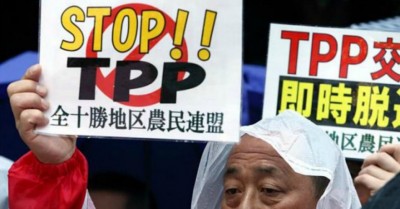The Secret Trade in Services Agreement (TISA)

Most people never heard of it. They’re not told how they’re systematically deceived, lied to and swindled. There’s nothing fair about US free trade agreements.
In June 2014, WikiLeaks released a secret TISA Financial Services Annex text covering 50 countries and over two-thirds of world trade in services.
It aims for deregulating global financial services markets more than already. It allows unrestricted exchange of personal and financial data.
At the time, Global Trade Watch director Lori Wallach said:
“If the text that was leaked today went into force, it would roll back the improvements made after the global financial crisis to safeguard consumers and financial stability and cement us into the extreme deregulatory model of the 1990s that led to the crisis in the first place and the billions in losses to consumers and governments.”
“This is a text that big banks and financial speculators may love but that could do real damage to the rest of us.”
“It includes a provision that is literally called ‘standstill’ that would forbid countries from improving financial regulation and would lock them into whatever policies they had on the books in the past.”
A leaked February 2015 TISA text reveals updated provisions even worse than last year’s draft.
The Electronic Frontier Foundation (EFF) calls the Trans-Pacific Partnership (TPP), Trans-Atlantic Trade and Investment Partnership (TTIP) and TISA “a trifecta of trade agreements (Obama) could sign under Fast Track without full congressional oversight” if authority to do so is granted.
TISA is another nightmarish anti-consumer measure. It mandates global rules affecting Internet use and other “free flow of information” restrictions.
It prohibits legislative authorities from protecting the privacy of their citizens. It establishes global rules on Net Neutrality – “including an open-ended exception for ‘reasonable network management’ that could become a loophole for exploitation,” according to EFF.
There’s more. TISA prohibits countries from enacting free and open source software mandates. When issues of national security are legitimately at risk, nations can require suppliers to disclose their proprietary source code. TISA prohibits it.
It requires countries to introduce anti-spam laws. In practice they don’t work. They’re ripe for abuse.
EFF says these examples “only scratch the surface of TISA.” They demonstrate a problem affecting TPP and TTIP – mandating rules nations may later regret, including overriding national laws.
Supranational ones replace them, benefitting corporate predators over people.
Secretive TPP, TTIP and TISA negotiations are designed to establish anti-consumer trade rules binding signatory countries in perpetuity.
Ordinary people have no say whatever – nor democratically elected representatives not told about what’s being negotiated secretly.
All the more reason to prevent Obama from getting fast track authority to ram through Congress anti-consumer trade bills with minimal debate and no amendments.
The Senate barely approved it in a stunning 48-hour turnaround after first voting no. The good news is most House members oppose it, so far.
Lori Wallach explained “(s)ince 1988, only (Reagan and GW Bush) persuaded Congress to provide the multi-year, open-ended Fast Tract delegation that Obama seeks.”
“In the past 21 years, Congress has allowed the outdated (anti-democratic) procedure to go into effect only for five years.”
Hopefully House members will kill it when it comes up for a vote in June.

